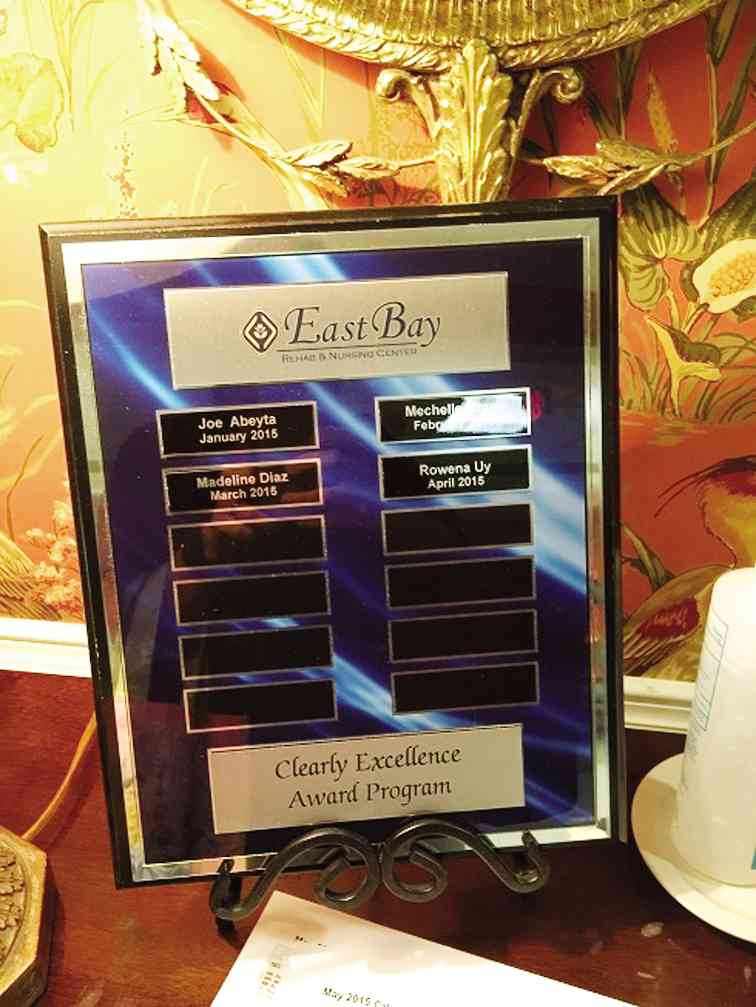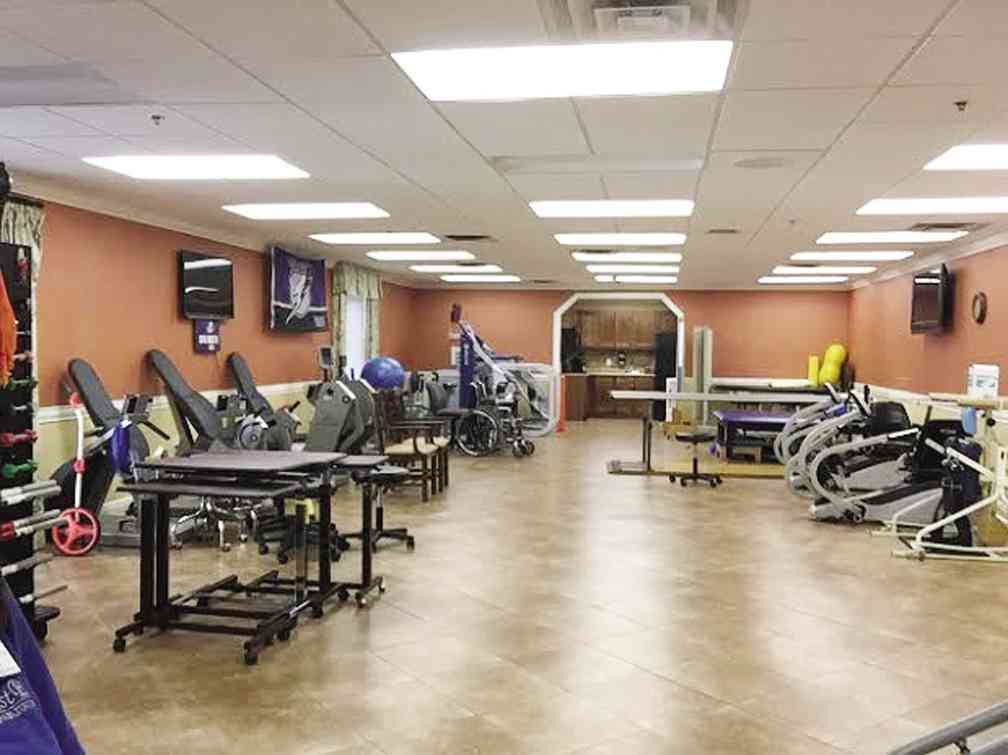Bringing sunshine to Florida
WORKING abroad was never part of Rowena Chio-Uy’s plan. She was happily married and living comfortably in the Philippines.
Undecided on what to do after college in Cebu, she went to the US, paid for by her parents. The vacation would change her life and make her eventually live in a foreign country.
Upon arriving in America, Uy would learn from her cousin and classmates that occupational therapy graduates were very much in demand in Florida. Being a retiree’s paradise, the state was perfect for those who have license to practice.
When she returned to the Philippines, she went to school again and took up occupational therapy. It was time to think about the future, for her son who was only 1-year-old then (now a budding junior football player) and her forthcoming children.
Occupational therapy is helping people overcome the effects of aging, physical or psychological disability. In the US, the profession allows big career opportunities to practitioners.
Rebuild self-esteem
It requires patience, compassion and determination. “It is a tough job because you have to lead people to live their life back and give them a new sense of purpose. But it is easy for those with a natural interest in caring for people,” Uy says.
Occupational therapists work in hospitals and various health-care settings or they visit patients in their homes. They design individual and group programs to enhance clients’ independence in everyday activities, like helping them recover their motor skills and make them learn do the same things again (dress by themselves, cook, use a computer, write, etc.) with one goal—rebuild their confidence, as well as their self-esteem in social situations.
Uy talked to her parents and husband about her plan. She told them she wanted to know what America could offer to her family. “I wanted to give it a try. If we don’t like it, we can always go home anytime.”
All of them agreed and gave support. She attended review classes in Manila and took four tough exams consecutively. The process was long, tiring and expensive. It took her one year to finish her course.
Uy’s leap of faith transported her to her American dream. Today, she works as a full-time licensed occupational therapist in a skilled nursing facility. She also has a second job, doing home health work to earn extra income. Home health care is one of Florida’s highest paying jobs.
Last April, she was chosen as “employee of the month” at the facility she works with, given a bonus, a free lunch to celebrate the occasion and special parking privileges for one whole month. They may seem small but it meant the world for her—she was making a difference in the lives of her patients.
Working in a geriatric home is emotionally rewarding for Uy. “Most elderly people I deal with are alone, lonely and depressed. They have children who have left them, who are now busy with their own lives, families and career or living far away in another state,” she says.
But it is a pleasure for Uy because she considers them already part of her family.

EMPLOYEE OF THE MONTH Uy’s motivation for work is to always be teachable and humble. Never stop searching for knowledge because there is always something new to learn.
Daily challenges
Uy seems perfect for her job. Always wearing a smile she tries to be optimistic as much as possible, constantly demonstrating a positive attitude to whoever she meets. “I always want a happy environment. I am a sensitive person and can be moved easily. It’s very difficult for me to say “no” to anything,” she says.
She even has a positive attitude about discrimination. For her, it is an experience people can learn many lessons from no matter how serious. She always tries to be nice and helpful to everybody no matter what the situation is.
“There are, however, people who take advantage of other people’s kindness,” she says. “They interpret it as a sign of weakness. They would try intimidation by making you feel they are more superior. Being humble, sadly, doesn’t work all the time. Sometimes, you have to let them see your strong side, to prove that you worked hard to get where you are right now,” she says.
Uy takes pride in other Filipinos she works with in the facility. “We help each other out, even if we work in different departments,” she says.
Here’s what they say about Uy:
Sandie, a coworker: “I find you to be uplifting, intelligent and strong. You derive your strength from your faith, family and friends. In your work, you help you patients find their strength as they are recovering from their illnesses or injuries. You have a calming presence and a special talent for making people smile even though facing a tough time.”
Angie, a resident patient: “You are very patient and very helpful. You go above and beyond with residents.”
From a superior: “You are an asset to the therapy team. You are flexible and adapt to changing situations throughout the workday while maintaining a positive attitude. You make patient care a top priority.”
Living in America
Being planted into the American culture is not exactly big deal for Uy. “We are used to this kind of life. If there’s one word to describe it, it would be “routine”—from work, to bringing the kids to school, getting them into sports, to just about anything,” she says.
Holidays and weekends mean “household chores” for Uy. She has no yaya and thinks she doesn’t have enough time for herself. “Filipinos should value having household help. With them, you can focus on your work, do other important things and spend more quality time with the kids.”
Uy became more independent since she went to America. It provided her privileges to grow her profession. “I think I want to work here while I’m young and there are opportunities. My long-term goal is to go back to my home country to retire,” she says.
Uy was born in Quezon City but grew up in Cotabato City. She and her husband Peter studied in a Chinese school from kindergarten to high school. Her family moved from Cotabato to Davao when peace and order in the city was getting worse and making them unnecessarily anxious.
“We cannot live a normal life in Cotabato. Hearing gunshots even in the city was normal and our friends and relatives were being kidnapped,” she says.
Her parents worked to give her and her two other siblings a good life. “We grew up seeing their struggles and eventual successes, strengthening our faith,” she says.
Prior to her work in the US, Uy took the Philippine board (though not a prerequisite to work in US) exam, TOEFL (Test of English as a Foreign Language-written), TSE (Test of Spoken English) and the state board-NBCOT (National Board for Certification in Ocuppational Therapy).
She took internships in various hospitals, clinics and a number of schools. She trained in Philippine General Hospital, volunteered in a charity organization and worked in Mind Works Therapy and home health clinics to enrich her work experience.
Support system
Her support system in the US is her family, relatives, former college classmates and Pinoy friends. Like every Filipino, she misses Filipino food, good time with friends and get-together with relatives. “I miss Holy Week, observance of All Saints’ Day and Christmas celebration in my homeland. Indeed, it’s more fun in the Philippines,” she says.
Every time patients would ask her about her nationality, Uy would always proudly answer with a warm smile: “I am Filipino.”
What would she advise Filipinos who’d want to do the same work in the US? She mentions her philosophy in life: “Always be teachable and humble. Never stop searching for knowledge because there is always something new to learn. Always add sincerity to what you are doing. Being dedicated in helping your patients will make a difference.”
PH need
Uy is proud to be an occupational therapist. For her, it is a fulfilling career because of the way it helps many people overcome difficulties at certain point of their lives. She says, just as America needs occupational therapists, the Philippines also needs them, specifically, pediatric occupational therapists for special children.
Awareness for occupational therapists among Filipinos has been increasing steadily. According to a migration of health workers country case study made by the University of the Philippines Institute for Health Policy and Development, the US is a preferred destination country for all categories of health workers because of the following: better working conditions, professional development opportunities, advanced technology, facilities and equipment and high opportunity for family migration and citizenship.
